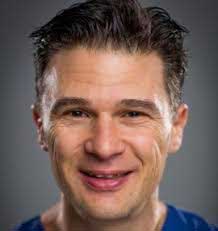Dr Nabil Saleh
NSW - Sydney Specialist Anaesthetist (BSc(Med) MBBS(Hons) FANZCA AMA-M)
“The key to excellence in anaesthesia is good patient preparation, as well as a fulfilling and balanced life outside of medicine. With this balance, an anaesthetist’s job is not about the latest technique or the most interesting way of doing something. It is simply about tried and true techniques which are safe and in the best interests of the patient.”
Dr Saleh is the Head of Norwest Private Anaesthetic Department and Senior VMO at Liverpool Hospital and Macquarie University Hospital. He has vast clinical experience across a range of disciplines, in particular orthopaedics (with extensive experience in lower limb joint replacement and reconstruction), obstetrics and gynaecology, trauma and tertiary emergency, and coordinating theatres as duty anaesthetist. Dr Saleh also has extensive non-clinical experience, serving on the executive at Liverpool Hospital and as director of QA for 10 years.
Dr Saleh loves his work and takes great pride in setting very high standards of excellence, but his work is just one aspect of a balanced life. When not working Dr Saleh spends his time with his wife and 3 grown sons, along with his German Shepherds. His other interests include growing fruit and veggies, long walks, golf and skiing. Whilst in golf he is a self-described “hack”, in skiing Dr Saleh is fairly accomplished having attained certification as a Canadian ski instructor.
He looks forward to meeting you, to chat and to hear your story.
Please contact the practice manager for further information at which time your health and anaesthetic history can be taken, and a complete quotation for the cost of your anaesthetic.
INFORMATION ABOUT YOUR ANAESTHETIC
Anaesthetists in Australia are specialists – that is, they are among the world’s most highly trained doctors having spent years undergoing specialised training in anaesthesia, pain control, resuscitation and managing medical emergencies. Dr Saleh is one of these specialists and is actively involved in training and assessing new anaesthetists.
Depending on your operation, the anaesthetic may be general or regional. Regional means that only the part of your body being operated on is anaesthetised, while you are given sedation to be kept comfortable. For many patients, particularly in operations below your “belly button”, this is a very safe technique, ensuring that there is not too much stress placed on the heart or breathing systems. General anaesthesia is not sleep. Rather, Dr Saleh puts you into a state of carefully controlled unconsciousness so surgery will be painless.
Regardless of the technique, no chance is taken during this period. All your bodily functions are carefully and constantly monitored by Dr Saleh. Afterwards, we want you to experience as little pain and discomfort as possible and Dr Saleh will continue to monitor your condition carefully, well after surgery is finished to ensure your recovery is as smooth as possible.
Fasting before your operation is essential. Please check the details with your hospital. If you have not fasted, your operation may be postponed in the interests of your safety. The hospital booking/admission documents will also inform you of when you can drive/ride again, and resume normal activities after having an anaesthetic, usually at least 24 hours. You must arrange for a competent adult family member or friend to accompany you home after your procedure.
Some temporary side effects from the anaesthetic are common: drowsiness, sore throat, nausea, and headache, but these soon pass. There are risks of complications—some minor, some serious. Some infrequent complications include: bruising, pain or injury at injection sites, temporary breathing difficulties, temporary nerve damage, muscle pains, asthmatic reactions, headaches, damage to teeth and dental prostheses, lip and tongue injury, temporary speech difficulties and epileptic seizure.
There can also be some very rare, serious complications including heart attack, stroke, severe allergic reactions, brain damage, kidney or liver failure, lung damage, paraplegia or quadriplegia, permanent nerve or blood vessel damage, eye injury, damage to the larynx and vocal cords, pneumonia and infection from blood transfusion. The possibility of serious complications including death is quite remote but it does exist. Dr Saleh will endeavour to minimise risks in your anaesthetic.

Dr Nabil Saleh
Dr Nabil Saleh is an Anaesthetist based in NSW - Sydney Australia.
Pre-Op Questionnaire for Dr Nabil SalehPatient Experience Survey for Dr Nabil Saleh
Online Forms:
Extra / FAQ Pages:
